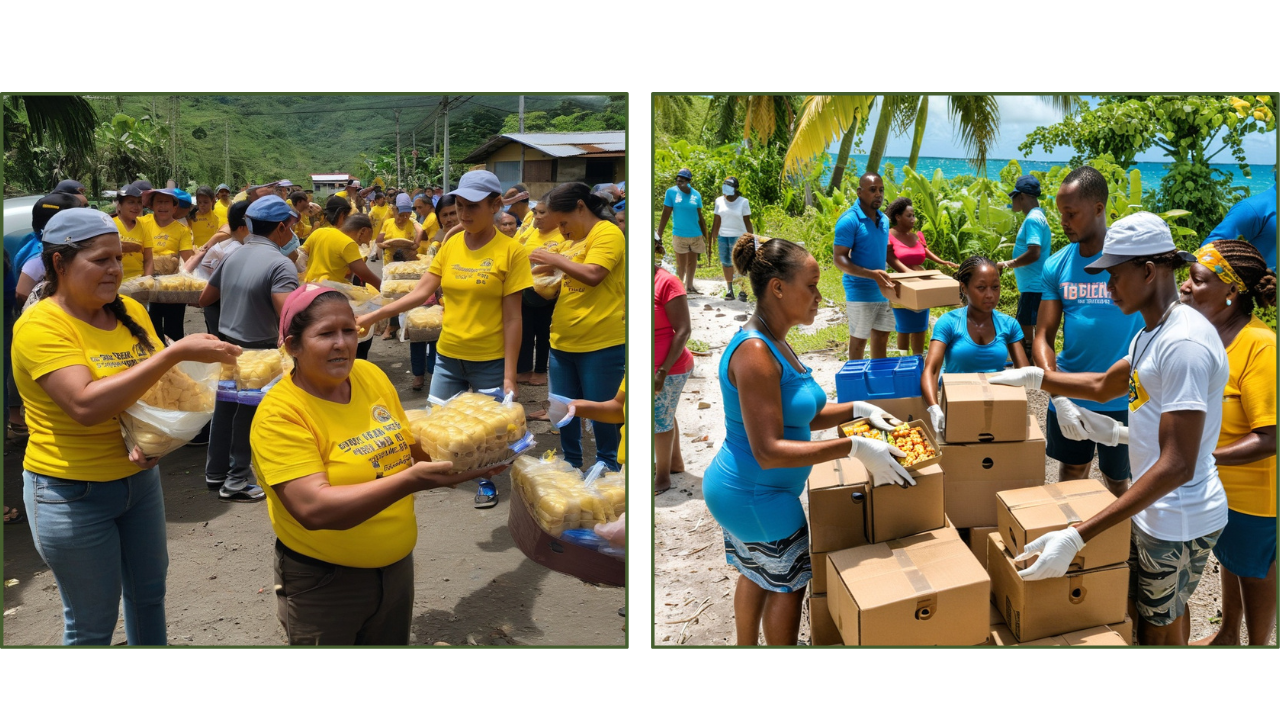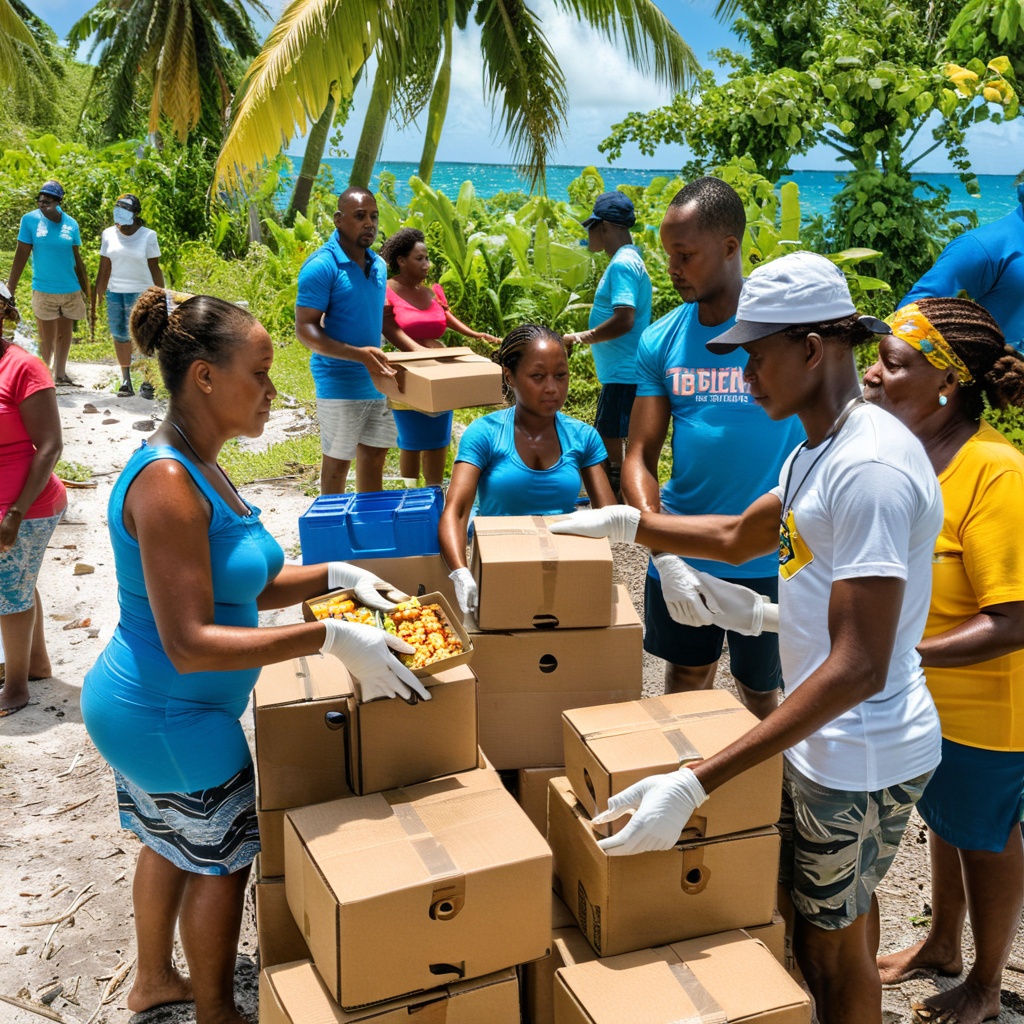Charity Is How We Started
Velvet Waite I May 16, 2024

Solo Nos began as a heartfelt response to the pressing needs within our community.
Rooted in a deep-seated family belief in charity, our founders consistently engaged in drives and giveaways of clothes, food, and hygienic products to indigents and families living below the poverty level.
This spirit of giving laid the foundation for what would become a broader movement dedicated to community-driven change.
As it is written in 1 John 3:13, “Do not be surprised, my brothers and sisters, if the world hates you.” Despite the challenges and resistance we faced, we persevered, driven by the belief that our actions, rooted in love and compassion, could make a difference.
Our commitment to charity was further inspired by 1 Corinthians 13:13: “And now these three remain: faith, hope and love. But the greatest of these is love.”
This scripture reminded us that love is the most powerful force for change.
Our initial efforts were simple but impactful. By organizing local drives, we provided essential items to those who needed them most. These early initiatives not only met immediate needs but also fostered a sense of solidarity and hope among recipients.
This grassroots approach underscored a powerful message: meaningful change begins within our own community.
"Do not be surprised, my brothers and sisters, if the world hates you."

As we witnessed the positive impact of these small acts of charity, we recognized the potential for a more structured approach. This realization led to the formal establishment of Solo Nos, transforming our informal charitable efforts into a coordinated movement with a broader reach. Today, Solo Nos continues to embody the principle of “by the community, for the community,” driving initiatives that empower underprivileged youth, Afro Costa Rican youth, and the Afro Diaspora, while also supporting the elderly, battered women and children, small businesses, and indigents.
The Power of Charity in Numbers
1. Poverty and Charity Statistics:
- According to the World Bank, nearly 9.2% of the world’s population lives on less than $1.90 a day.
- In Costa Rica, approximately 21% of the population lives below the national poverty line.
- Charitable organizations globally have seen a rise in donations, with the Giving USA 2022 report noting that Americans donated over $471 billion in 2021.
2. Impact of Charity on Communities:
- Studies show that communities engaged in regular charitable activities experience higher levels of social cohesion and trust.
- Youth involved in charitable activities are more likely to develop leadership skills and a sense of civic responsibility.
- Charitable activities, especially those providing basic necessities, have a direct positive impact on the physical and mental health of recipients.
3. Benefits of Supporting Underprivileged Youth:
- Providing educational support to underprivileged youth can significantly increase their chances of higher education and employment.
- Afro Diaspora youth benefit from targeted programs that recognize and address the unique challenges they face, promoting better educational and social outcomes.
- Community support initiatives have been shown to reduce juvenile delinquency and improve overall community well-being.
By focusing on these areas, Solo Nos aims to harness the power of charity to create sustainable change. Our initiatives are designed to uplift those in need and empower them to become active contributors to their communities. We believe in the benefits of volunteerism and the importance of educational equity, recognizing the significant social impact that can be achieved through dedicated efforts in philanthropy and community support.
Citations:
1. World Bank. (2021). Poverty Overview. Retrieved from [World Bank](https://www.worldbank.org/en/topic/poverty/overview).
2. Instituto Nacional de Estadística y Censos (INEC). (2021). Pobreza en Costa Rica. Retrieved from [INEC](https://www.inec.cr/).
3. Giving USA. (2022). Annual Report on Philanthropy. Retrieved from [Giving USA](https://givingusa.org/).
4. Putnam, R. D. (2000). Bowling Alone: The Collapse and Revival of American Community. Simon & Schuster.
5. Corporation for National and Community Service. (2018). Youth Volunteering and Civic Engagement. Retrieved from [NationalService.gov](https://www.nationalservice.gov/).
6. American Journal of Public Health. (2013). The Health Benefits of Volunteering. Retrieved from [AJPH](https://ajph.aphapublications.org/).
7. UNICEF. (2020). Education and Equity. Retrieved from [UNICEF](https://www.unicef.org/education/equity).
8. The Journal of Negro Education. (2015). The Impact of Community Support on Afro Diaspora Youth. Retrieved from [Journal of Negro Education](https://www.jstor.org/).
9. National Institute of Justice. (2014). The Role of Community Programs in Reducing Juvenile Delinquency. Retrieved from [NIJ.gov](https://nij.ojp.gov/).
